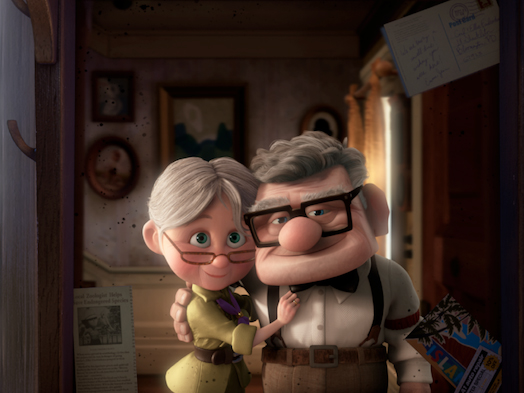
In most films, there is often a soundtrack that pairs along with it. Many times, it is new original music made just for the film or selected music added into it. Plenty of timeless songs have come from films that have even transcended the film itself. Some notable songs that gained popularity away from their respective films are “(I’ve Had) The Time of My Life” from “Dirty Dancing” and “My Heart Will Go On” from “Titanic.”
Movie soundtracks can vary from many different types of music, including original music sung by the characters in a film, or an original score. There may be a musical soundtrack that can be incorporated into the film itself or have background music composed to represent the pacing of the film. In both ways, music has a way to heighten the film’s scenes and impact them in a way that keeps the audience engaged and immersed in the film.
Soundtracks made specifically for a movie amplify the tone, highlighting scenes. If there is a particularly sad scene, a sad song may play in the background. To fit a certain tone of the film, a carefully crafted soundtrack is made to match with it. A song can be played at the right moment of a film to accurately represent the scene that is shown on the screen. This can be seen with the instrumental song “Married Life” from “Up.” The song accurately portrays the range of emotions in the scene. Hearing the song on its own reminds listeners of the sad scene and potentially gets them emotional. For the audience, they are able to connect with a scene through the music and soundtrack playing in the background. This gives the audience a more inclusive cinematic experience that combines both imagery and sound through the screenplay and music.
A memorable soundtrack exists beyond the film, making it noteworthy for audiences to listen to in their own time. Often, soundtracks or certain songs turn into hits, surpassing the films themselves. When audiences listen to the soundtrack outside of the film, they are able to experience it without actually watching. For some, the soundtrack or a few songs on the musical score provide tunes to listen to casually in their everyday lives.
When the song corresponds with the scene, the audience can feel more immersed in the film and its setting. An example of this is “Tokyo Drift” in “The Fast and The Furious.” Performed by the Japanese hip pop group, Teriyaki Boyz, the song sticks to the atmosphere of Japan, while having an upbeat, fast song. It helps to represent the intense street racing that happens in most of the film. It matches the energy of the film, while giving the audiences a fun, fast beat song to listen to.
Besides a single song standing out from the film’s soundtrack, an overall soundtrack can accurately represent the film as a whole. In Marvel’s “Black Panther” and “Shang-Chi and the Legend of the Ten Rings,” both soundtracks take from the background of the films to portray them. “Black Panther” has an original soundtrack that consists mostly of hip-hop, rap and R&B. The album was made with songs inspired by traditional African music and orchestral music commonly used in superhero films. The same was done with the “Shang-Chi” soundtrack. The soundtrack featured an original score as well as original tracks featuring Asian artists. Both soundtracks feature representation that goes alongside each movie and its diversity.
Some songs become so popular that they become even more popular than the film. When a certain song appears on the radio, listeners may be reminded of the film. Films become known for the soundtrack or a song that came out of it. Soundtracks from past films can be recognized today and give nostalgia, becoming classics and standing independently from its movie counterpart.
Soundtracks can become iconic with a certain tune that anyone can immediately connect to its respective film or its franchise. Orchestral scores are an example of this with the “Avengers Theme,” “The Imperial March” and “Hedwig’s Theme” from Marvel, “Star Wars” and the “Harry Potter” series, respectively. As soon as the first few beats of these scores are played, listeners can tell which franchise the score belongs to.
Soundtracks have such an impact on the film that they could potentially get nominated for an award for best song or best score. From original new music to orchestral scores, plenty of soundtracks have the potential to get recognized and nominated. For songs that reflect the film skillfully and transform it into a piece that the audience can get a better experience out of, they have the potential to be nominated for their outstanding quality.
Between the movie and its soundtrack, the audience can get a better experience when the two coincide with each other. When the soundtrack fits into the film, the audience is able to become more immersed in the story. A film’s soundtrack can have a strong impact on the film while also having the potential to become a memorable hit on its own, long after the movie’s release.








